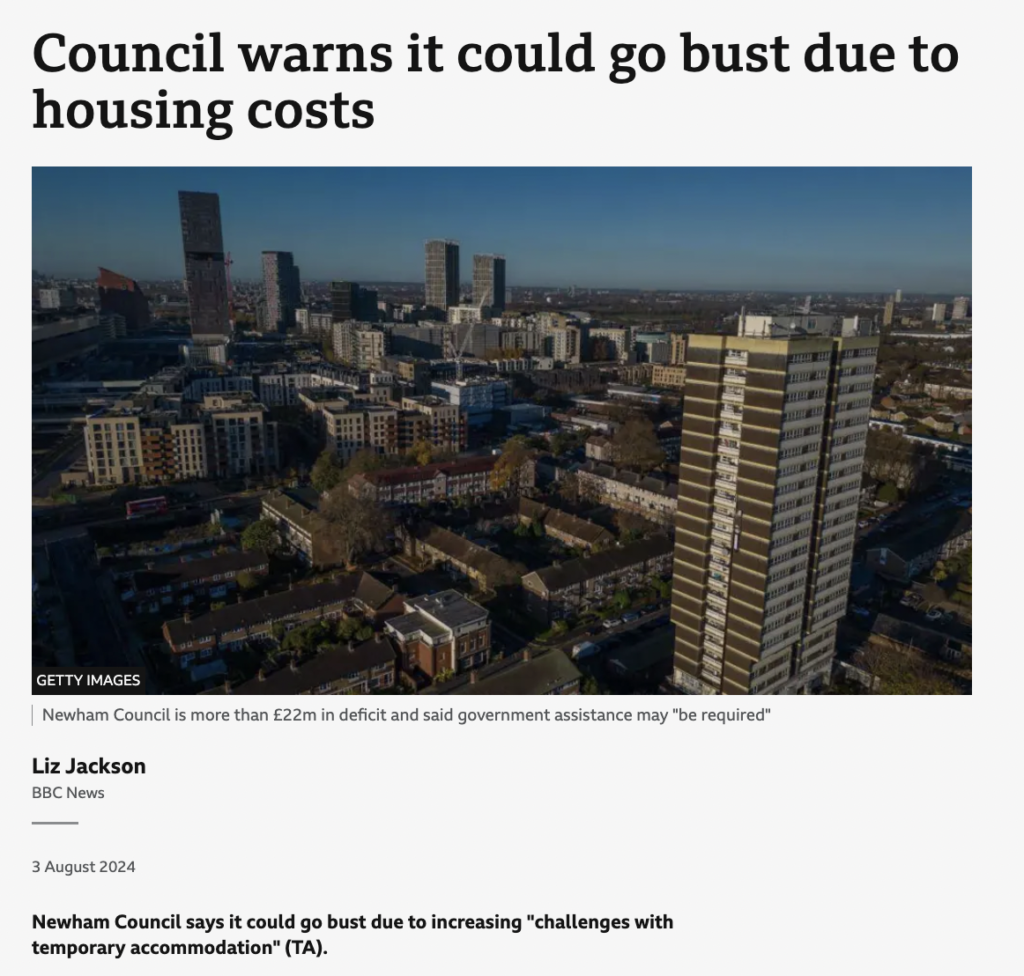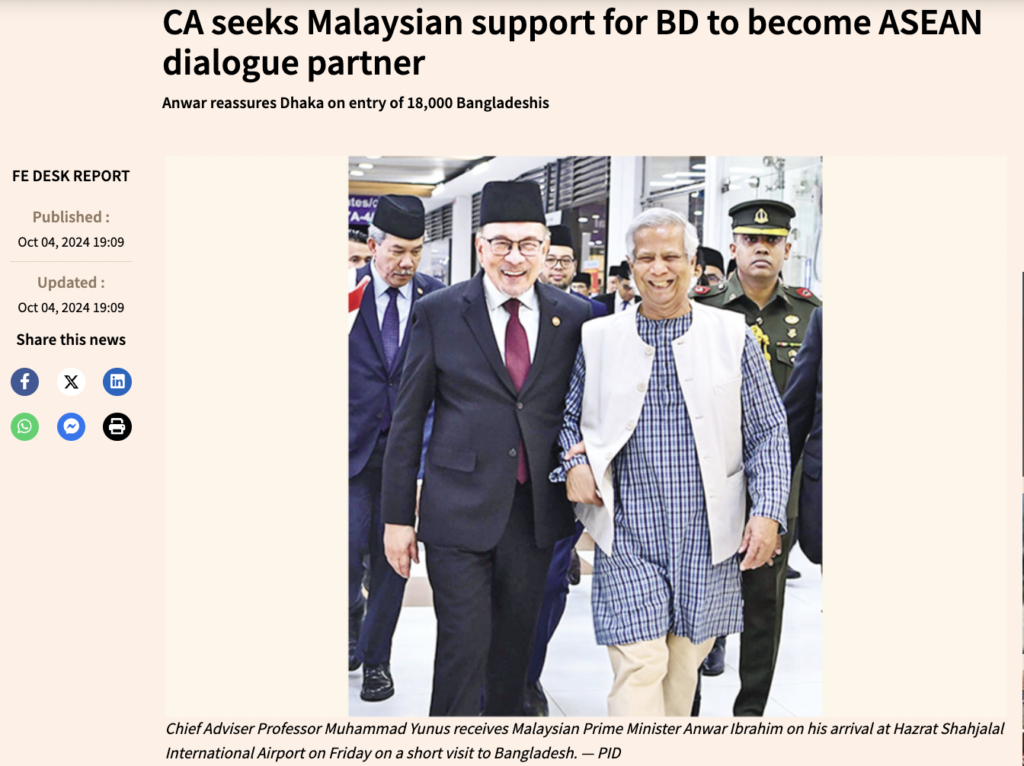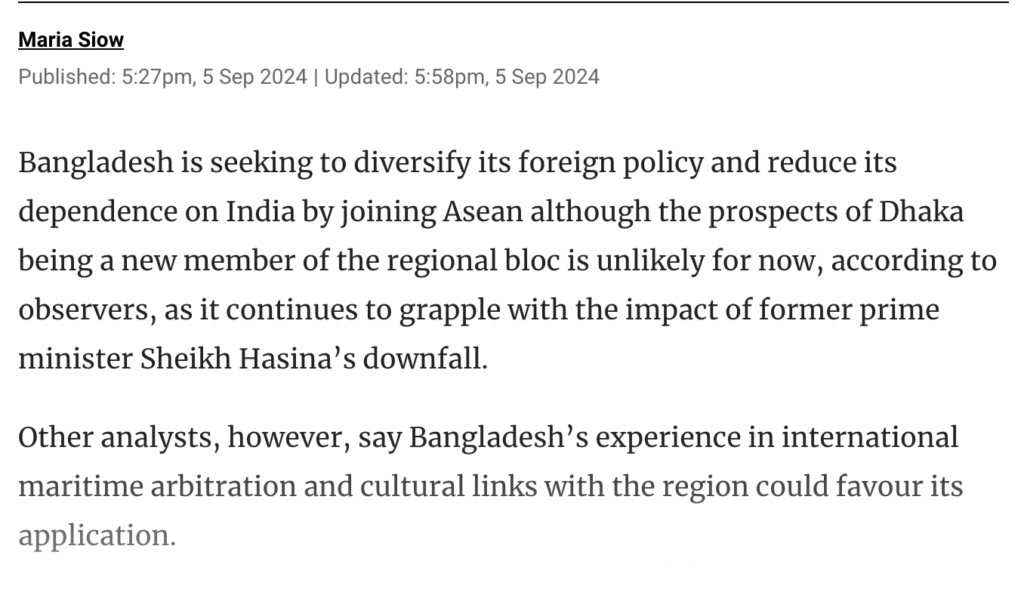A deep dive into the Best Value Inspection Report delivered by Whitehall Inspectors on Tower Hamlets Council. A strategic own goal by the local Labour Party?
Plot to Remove the Mayor? Call In the Inspectors!

For around a year, political circles in Tower Hamlets have been abuzz since the then Secretary of State, Michael Gove, called in the inspectors. Labour Party members have been busy spreading rumours that either commissioners would be brought in, as they were previously under Mayor Lutfur Rahman and later under Mayor John Biggs, to take over the functions of the Council. Or that the Mayor would be removed. However, when the report finally emerged, it proved to be a damp squib, as I predicted about a year ago. No removal, no commissioners taking control of the council—just an envoy to monitor and report back.
So what are the substantive details of the report?
Inspectors Report: Positives and Negatives, but Tower Hamlets Could Do Better

The report resembled an Ofsted inspection of an inner-city school: a new headteacher and senior leadership team are in place, but they face resistance from a group of hostile parents and contractors. In such a challenging environment, mistakes have been made—mistakes that are also seen in other urban schools. An improvement plan has been set in motion to address these issues, and while progress is evident, continued monitoring is necessary to keep things moving in the right direction.
In local government terms, many of the report’s findings were anticipated. The new political administration consists of councillors who are still finding their footing, having replaced senior officers appointed under the previous Labour administration. This transition, combined with a tense political climate stoked by former Labour members, has led to a “siege mentality” within the current Aspire administration.

Notably, at a time when several London Labour-led councils are facing financial difficulties—Newham being nearly bankrupt—the report commends Tower Hamlets’ financial management, highlighting the significant improvements since the previous Labour administration.
So what triggered the inspection, given nothing extraordinary was found by the inspectors at Tower Hamlets Council?
Why the Inspection? Contested Narratives.

According to multiple sources, there are differing narratives around why then-Secretary of State Michael Gove deployed inspectors, including Sir John Jenkins, a former British ambassador to Saudi Arabia and Libya. Officially, the Best Value Inspection followed an LGA Peer Review, which had raised certain concerns.
An LGA Peer Review is a voluntary, improvement-focused evaluation conducted by the Local Government Association (LGA) for UK local authorities. It involves seasoned council officers and members from other councils, who assess a council’s performance in leadership, governance, financial planning, and service delivery. The review process includes preparation, an on-site visit, immediate feedback, and a follow-up report with improvement recommendations. Unlike audits, LGA Peer Reviews are designed to be collaborative and supportive, helping councils enhance their practices and strengthen transparency and accountability.
However, another account suggests that the inspection was motivated by the media focus on Tower Hamlets as a hub of pro-Palestinian sentiment and activism after the Gaza conflict. Allegations, reportedly from the Tower Hamlets Labour Party, claimed that these activities were being orchestrated from the Town Hall—though the claims were unfounded. This led to Sir John Jenkins, a former diplomat with expertise in Middle Eastern affairs, joining the inspection team.
So who is Sir John Jenkins and why Tower Hamlets?
Neo-Cons in the Town Hall: In search of the Tower Hamlets Spring?

Sir John Jenkins is a prominent career diplomat with extensive experience across the Middle East, including postings in Israel, Saudi Arabia, and post-Gaddafi Libya. His tenure coincided with pivotal events like the Arab Spring and the concerted efforts by Gulf monarchies to suppress democratic movements across the region. During this period, Gulf-backed forces supported a former Gaddafi general in opposition to Libya’s elected government. Known for his neoconservative leanings, Jenkins has been celebrated by right-wing think tanks such as Policy Exchange.
Given this background, it surprised few when Jenkins was assigned to inspect an administration led by an independently elected Muslim mayor. Sources indicate that among his first inquiries at the Town Hall was to question who was responsible for displaying Palestinian flags.
Above: Reports of Bangladesh Government’s application to join ASEAN (The Association of South East Asian Nations). In sharp contrast to the opinions held by elements within the local Labour Party, Bangladesh is located geographically between South Asia/South East Asia and not the Middle East.
As a former Labour councillor, I am unsurprised that figures like Cllr Asma Islam and Cllr Marc Francis reportedly contributed to Jenkins’ perceptions, allegedly portraying the borough as one plagued by Middle Eastern insurgents. Of course, Jenkins found no such evidence, which is hardly surprising, given that Bangladesh—home to many in the community—shares its borders with Burma, not Bahrain. Its diaspora is more likely to work in technology or engineering than to be involved in the oil industry or armed conflict.
When I was a Labour councillor, I often heard that Marc and Asma Islam were the same individuals scheming together in local pubs. Apparently leading efforts to root out an imagined communist insurgency within the local Labour Party and the wider concrete jungle of Tower Hamlets. Whether these plots were devised with a sober mind was never quite certain, but their hunt for “reds under our beds” seemed as detached from reality as many of their other anxieties, including a Middle Eastern insurgency on the streets of Tower Hamlets.
Strategic Mistake by the Tower Hamlets Labour Party? The Accusers Have No Clothes!

In 1837, Danish author Hans Christian Andersen published a series of short stories, including the classic “The Emperor’s New Clothes.” Fast forward to 2024, and Tower Hamlets faces its own twist on the tale: in the wake of the recent inspection report, it seems that the Tower Hamlets Labour Party—the emperor’s accusers—find themselves exposed, having scored a strategic own goal. This outcome, one I warned several Labour Party members about after they reached out to me regarding the report, could impact the upcoming election in unexpected ways.
As the Best Value Inspection approached, Labour members expressed excitement over a Whitehall review, hoping it would provide ammunition against the Mayor. I cautioned them, however, that they might be acting prematurely. No major decisions had yet been made by the Mayor, and most operations were essentially continuations of the previous Labour administration’s initiatives. This meant there was little for inspectors to investigate, even if they arrived with a critical eye. I explained that, if the inspectors found no fault in the Aspire administration or with Mayor Lutfur Rahman, Labour would be unable to level accusations of misconduct during the election campaign.
So who are the winners, in this round of politics, following the Whitehall Inspectors reports?
Tower Hamlets Residents Come Out On Top

The real winners in this inspection saga are the ordinary residents of Tower Hamlets. With external assurance from Whitehall that no financial wrongdoings are taking place in the Town Hall, there is now hope that the upcoming election campaign will focus on policies and facts. This would mark a shift away from the past strategies used by the Tower Hamlets Labour Party, which at times leaned on harmful stereotypes questioning the trustworthiness of ethnic minority groups in leadership.
Or perhaps not.

End Note, A Summary of the Best Value Inspection Report
Positive Aspects of Tower Hamlets Council: Insights from the Inspection Report
Despite the significant concerns raised, the Best Value Inspection report also highlights some positive aspects of Tower Hamlets Council. These positive comments, collated under relevant headings, offer a more balanced perspective on the council’s performance and potential for improvement.
Dedicated and Passionate Workforce
- The report consistently acknowledges the dedication, passion, and hard work of many council officers and staff. Many staff are long-standing residents of the borough, demonstrating their commitment to their community.
- Staff are motivated by the opportunity to make a positive difference in the lives of Tower Hamlets residents.
- The inspection team notes that many staff expressed a strong desire to work in Tower Hamlets and would not want to work anywhere else, highlighting a sense of loyalty and pride.
- The staff conference, which included awards for high-performing individuals and teams, is cited as a positive example of recognizing staff contributions.
Strong Financial Management and Service Delivery
- Financial Stability: The council has a robust Medium-Term Financial Strategy, a balanced budget for 2024/25, and a financed capital programme.
- Addressing Past Financial Issues: The council has successfully addressed the backlog in the preparation and approval of its Statement of Accounts and Annual Governance Statements, which were a concern under the previous administration.
- Targeted Investments: The council has allocated one-off funding to address pressing issues such as waste and recycling backlogs and pressures in housing options.
- Satisfactory Service Performance: Despite some areas requiring attention, the council generally delivers satisfactory operational performance in most services, with some areas demonstrating good performance.
- Commitment to Community Needs: The council has prioritized investing in key areas like youth services, free school meals, education maintenance allowances, and a university bursary, demonstrating a commitment to addressing community needs.
- Internal Audit Strength: Despite the concerns around internal audit findings, the report acknowledges that the internal audit function received the highest grade in its external quality assessment.
Effective Communication and Community Focus
- Strong Internal and External Communication: The council’s communication function is highlighted as a strength, ensuring consistent messaging and effectively promoting the activities of the Mayor, councillors, and the council.
- Understanding of Local Issues: Both politicians and the council demonstrate a comprehensive understanding of the issues facing the borough’s residents, demonstrating a citizen-focused approach.
- Positive Resident Perception: The 2023 Annual Residents’ Survey revealed an overall satisfaction rate of 78% with the local area, with almost all services showing statistically significant improvements among their users.
Positive Steps Towards Improvement
- Responsiveness to Concerns: The council has demonstrated responsiveness to concerns raised during the inspection, taking action to address issues related to scrutiny and recruitment processes.
- Development of Improvement Plans: The council has developed action plans in response to the Corporate Peer Challenge and is actively working to implement these recommendations, including refreshing its workforce strategy.
- Recognition of Continuous Improvement Importance: The council has begun to demonstrate a shift towards a greater focus on continuous improvement, with the Chief Executive taking a proactive role in driving improvement efforts.
- Investing in Corporate Services: The council is investing in improving corporate services, such as finance, human resources, procurement, and information technology, which are identified as areas needing strengthening.
Other Positive Aspects
- Award-Winning Initiatives: The council has been recognized through various sector awards for its work, including its new Town Hall project and communications campaigns, demonstrating a commitment to excellence and innovation.
- Effective Community Safety Service: The report acknowledges the well-developed and effective community safety service, highlighting the work of Tower Hamlets Enforcement Officers (THEOs) in reducing anti-social behaviour and addressing community safety concerns.
It’s important to recognize that these positive aspects exist alongside the areas needing improvement highlighted in the report. The council’s capacity to effectively address the concerns will depend on its ability to build on its strengths, leverage the commitment of its workforce, and foster a more collaborative and transparent culture.
Tower Hamlets Council: Negative Comments from the Inspection Report
The Best Value Inspection report of the London Borough of Tower Hamlets provides a detailed assessment of the council across seven key themes. While some positive aspects are highlighted, there are also significant concerns raised throughout the report. Here are the negative comments, focusing on the four themes where most concerns were found: Leadership, Culture, Governance, and Partnerships.
Leadership and Culture: Lack of Trust and Defensive Culture
The inspection team found that the council suffers from a lack of trust and a defensive culture, permeating throughout the organisation and negatively impacting decision-making.
- Lack of Trust:
- Trust issues between the Mayor, senior managers, officers and politicians create anxiety and affect morale.
- This lack of trust is evident from interviews, staff surveys, and previous assessments like the Investors in People survey and the Corporate Peer Challenge.
- The inspection team experienced this distrust firsthand, with interviewees reporting being required to document their interactions with the team and the council challenging information requests and questioning the team’s competence.
- Some staff feared their emails were being monitored and preferred to communicate with the inspection team anonymously.
- Defensive Culture:
- The council tends to benchmark its performance against its own recent history rather than against best-value authorities, creating a flawed approach and lack of awareness about the impact of certain behaviours.
- The council appears overly sensitive and defensive about areas for improvement.
- Professional challenge or constructive criticism is not welcomed if it doesn’t align with the Mayor’s views or priorities, creating a barrier to progress.
- This defensive culture potentially limits the council’s ability to make well-informed decisions in the public interest, as senior officers may feel unable to propose alternative options to the Mayor and administration.
- Impact on Staff Morale and Decision-Making:
- The polarised narrative about past and current administrations negatively impacts staff morale, contributing to a ‘toxic’ work culture.
- Staff members perceive that senior officers are unable to challenge the administration, leading to concerns that risks are not adequately represented in reports and decisions may be delayed or altered, ultimately impacting service delivery.
Governance: Concerns about Appointments and Transparency
The report identifies serious concerns regarding governance, particularly in appointment processes and transparency.
- Appointments:
- There are concerns about the council’s adherence to Section 7 of the Local Government and Housing Act 1989, which mandates that all staff appointments be made on merit.
- A culture of patronage is evident in senior appointments, interim and consultancy arrangements, raising concerns about fairness and impartiality.
- Evidence suggests that individuals not considered the best candidates were appointed to roles, including instances where unsuitable appointments were made.
- The appointment of consultants without following proper procurement processes further raises concerns about transparency and adherence to regulations.
- Transparency and Information Sharing:
- The council has exhibited a pattern of hindering the inspection process by delaying or limiting access to requested information.
- This reluctance to share information raises concerns about the council’s commitment to transparency and openness.
- The council’s approach to publishing information is inconsistent, with some instances of exempting entire reports from public access despite containing information already in the public domain.
- Scrutiny and Accountability:
- The Overview and Scrutiny Committee’s effectiveness is hindered by inadequate resourcing, inconsistent access to information, and the influence of party politics.
- Internal audits frequently result in limited assurance, highlighting the council’s struggles to adhere to its own procedures.
- The inclusion of an Executive Member on the Audit Committee raises concerns about its independence and effectiveness in holding the council accountable.
- Decision-Making Processes:
- The lack of delegation from the Mayor causes delays in decision-making.
- The council’s reliance on supplementary agendas and late reports limits transparency and the ability for effective scrutiny.
- Internal processes outlined in guidance documents are not always followed, as evidenced by errors in reports.
- The lack of trust and defensive culture impacts decision-making, with officers potentially hesitant to raise concerns or present alternative options.
- Insufficient information is provided in some decision-making reports, particularly those concerning financial implications, limiting the ability for informed decision-making.
Partnerships: Strained Relationships and Limited Engagement
The report also highlights areas for improvement in the council’s engagement with partners.
- Strained Relationships:
- While front-line staff demonstrate a strong commitment to partnerships, relationships with the voluntary and community sectors have become strained due to concerns about lack of consultation and potential unfairness in grant allocation.
- Some partners express a lack of confidence in senior managers, citing concerns about competence, responsiveness, and a culture of favouritism.
- Trades unions have raised concerns about the council’s human resources function, describing it as slow, unresponsive, and frustrating.
- Limited Engagement:
- The Mayor and Chief Executive are not engaging with partners in the way they would expect or have experienced under previous administrations.
- The establishment of a Partnership Executive Group in response to recommendations to improve partnership arrangements is viewed by some partners with scepticism, lacking confidence in its ability to bring about real change.
These concerns represent some of the significant areas where the Best Value Inspection identifies weaknesses within Tower Hamlets Council. The report emphasises the need for the council to acknowledge these concerns, prioritise changing its culture, and demonstrate a genuine commitment to improvement across these key areas.




Recent Comments